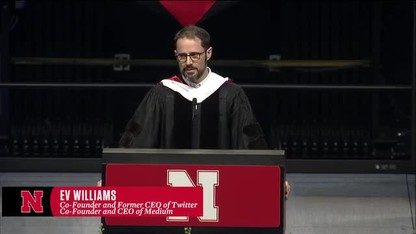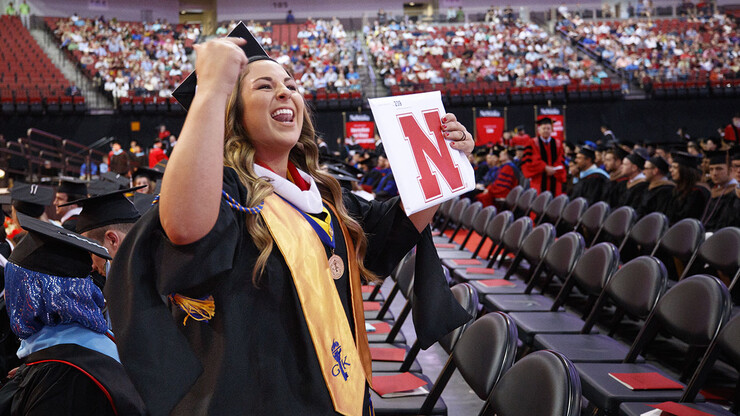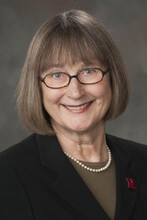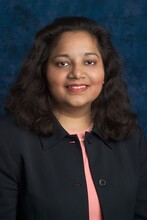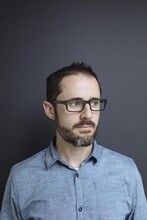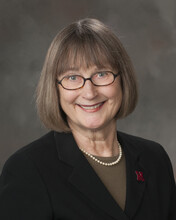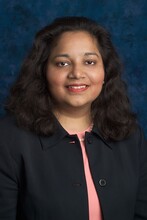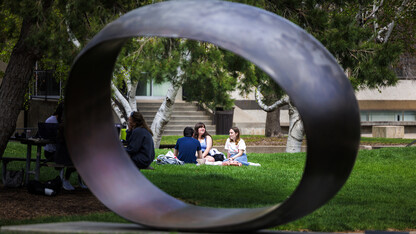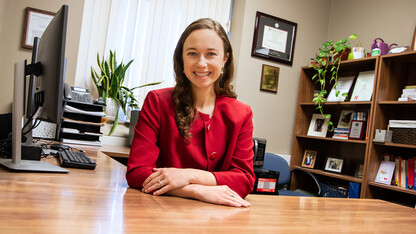· 4 min read
University awards 3,100-plus degrees
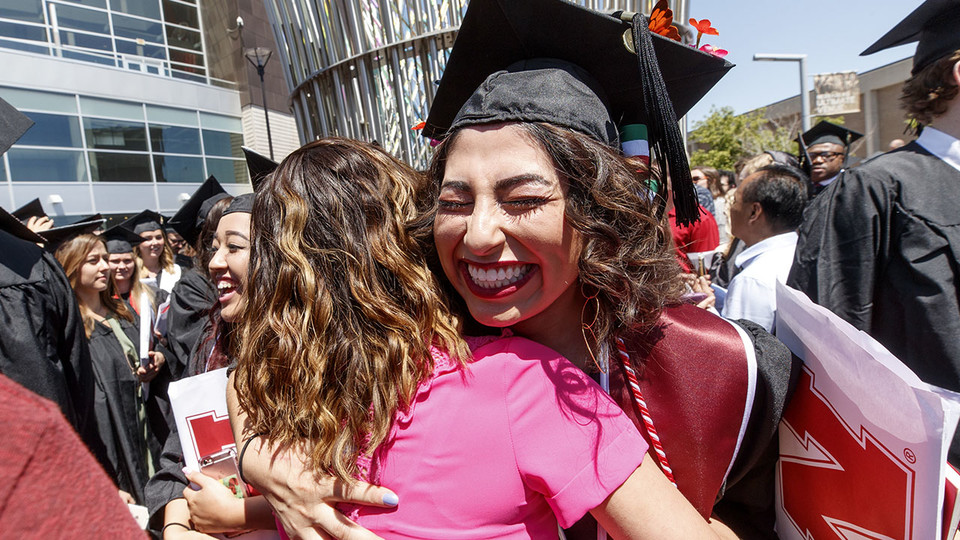
The University of Nebraska-Lincoln granted 3,107 degrees during commencement exercises May 5-6. | Full list of graduates | May commencement: By the numbers | Photo Story
The graduates are from 52 countries, 42 states and over 250 Nebraska communities.
Ev Williams, co-founder and former CEO of Twitter and founder and CEO of Medium, delivered the undergraduate commencement address May 6 at Pinnacle Bank Arena. He told of his journey from Nebraska farm kid to successful internet entrepreneur and offered advice to the graduates.
Growing up on his family’s farm near Clarks, Williams said he often felt like he was different. He knew he wanted to go out into the world and be part of something big, he said, even if he wasn’t sure what that was.
Williams attended Nebraska for a year and a half, and while he said he enjoyed his time at the university, it was an early issue of WIRED magazine that inspired his career path. He was particularly intrigued by the idea of using the internet to connect people around the world.
“Maybe it was because I grew up on that farm – with so many ideas in my head and so few people to share them with – but I couldn’t think of anything more exciting than a system with the potential to connect brains from all over the planet. A giant idea-sharing machine, as I saw it.”
Williams described his first internet company, based in downtown Lincoln, as a “complete disaster” but said it fueled his interest in the internet and prompted him to try his luck in California.
Encouraged by a culture of collaboration in Silicon Valley, he co-founded the blog-publishing service Blogger in 1999. It was bought by Google in 2003.
“We didn’t invent blogging, and we certainly didn’t perfect it. But, driven by our own needs, and a hunch that others would find it useful, we made it easier to do,” he said. “Turns out, that’s enough. In fact, that’s basically all that technology does: It makes things that people want to do easier.”
Following another hunch, he co-founded the popular micro-blogging service Twitter in 2006. He was the company’s CEO from 2008 to 2010 and remains on the board of directors.
Williams said limiting users to 140-character tweets seemed like a strange concept but that he believed the service was fulfilling the internet’s grand promise of a free flow of information.
“I thought this was the key to making the world smarter – free idea exchange meant more good ideas eradicating the dumb ideas that bring society down,” he said. “Everything would be better, I thought, if we just got rid of the gatekeepers and let people talk.”
Williams said he now knows that more people contributing ideas does not automatically make society smarter. The internet has the power to amplify bad ideas as well, and it’s sometimes difficult to sort through the noise.
“It’s a tool that reflects us. It’s just as good or as bad as we are,” he said. “But despite this – or, actually, because of this, I’m an optimist.”
He encouraged the graduates to be optimistic as well.
“But you should know that it is more work,” he said. “Because if you feel like it’s possible to solve problems, you feel obligated to try.”
Williams closed his address by urging the graduates to try new things, follow their instincts and work hard for a long time.
“You don’t have to set out to change the world,” he said. “Just find a way to make something worthwhile easier for other people – and you just might change the world along the way.”
Before the address, Williams received an honorary Doctor of Humane Letters.
Helen Raikes, Willa Cather Professor of Child, Youth and Family Studies at Nebraska, delivered the address at the graduate and professional degrees ceremony on May 5. Preeta Bansal, president of Social Emergence Corp. and lecturer in the MIT Media Lab, addressed the law graduates in a separate ceremony May 6.
The May graduating class earned 654 new graduate and professional degrees and 2,452 new baccalaureate degrees. The university has awarded 282,423 degrees since it was founded in 1869.
